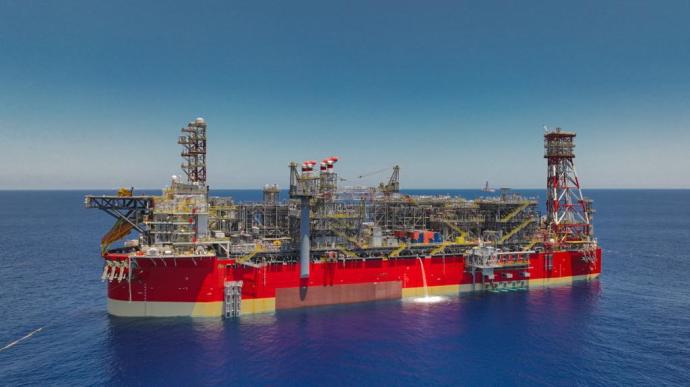Lebanon is opposing several clauses in the draft agreement with Israel on the maritime border, according to Lebanese media.
According to the reports, Lebanon will present its response to the American envoys, which may be an obstacle to the signing of the agreement.
The Hezbollah-affiliated Lebanese newspaper Al-Akhbar reported that the country would refuse to grant Israel the right to search for gas in the disputed territory.
According to an official in the Prime Minister's Office, Lapid will not agree to compromise on the security and economic interests of the State of Israel. "We are waiting to receive the comments officially from authorized parties so that we know if and how to move forward," the official said.
According to Lebanese reports, Lebanon has three major issues with the agreement proposed by Israel.

First, Lebanon allegedly does not accept the "security strip" proposed by Israel and flatly refuses to "establish a security zone for the enemy." The buoy line, which is not currently recognized, will remain as it is.
The second objection is the idea of demarcating the continental borders, and the refusal to conduct negotiations on these borders within the current agreement. Lebanese officials further stated that "negotiations of this type will be subject to discussion only with the UN, as it is happening now in the negotiations on the marking of the maritime borders."
"Negotiations of this type will be subject to discussion only with the UN, as it is happening now in the negotiations on the marking of the maritime borders."
Lebanese statement
Third, according to Lebanese reports, Lebanon rejected any attempt to tie the work of the "Total Energy" company to Israel, and wants the company to be related to the direct needs of Lebanon, committed to the work of drilling exploration in Lebanese territory, independent of any discussion with Israel. The country also announced the desire for the "Total" company to start operating at the same time as the work in the Karish field.
Another issue Lebanon has presented is holding an official ceremony in Ankara, "as the Israeli and American sides want," the Al-Akhbar newspaper claimed.
The newspaper stated that "in case of agreement, Lebanon will sign the letter, which will be delivered to the UN representative in the presence of the American mediator, and this will happen in a separate room from the room where the Israeli delegation is located. Only after that, the US will be able to inform Israel that the agreement has been signed and will come into effect immediately."
Three key principles presented by Israel
The comments from Lebanon were reported after the agreement that was taking shape had already been published, in which three key principles were supposed to be determined.
The first of these is the recognition of the Israeli security line - the buoy line, which was never confirmed, is now proposed to be recognized officially.
The line has never been enshrined in law until now, being decided by a unilateral decision, the meaning of approving it as such is to treat it as the territorial border line with Israel.
Another principle in the emerging agreement allows Israel to reach compensation for its rights in the territory it possesses - when the Lebanese will pay for the part of the Kana gas field that is in Israeli territory.
The third part of the agreement states that an economic agreement should be reached within the disputed area and not outside of it, allowing the Lebanese to hold rights to the reservoir up to the southern line of the disputed area - line 23, not 29 as they demanded.
